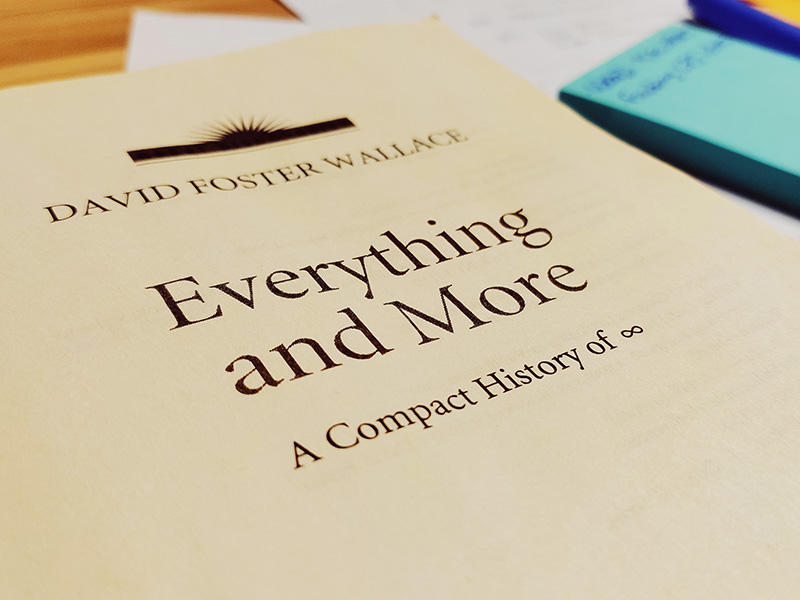
Neal Stephenson’s introduction in the re-issued edition of the late David Foster Wallace’s Everything and More is a lengthy screamer, a small portion of which goes like this → To begin with, David Foster Wallace was arguably a science fiction writer (Infinite Jest), although he probably would not have classified himself as such. Of course Everything and More is not SF, or even F, at all, pace some of its detractors, but the mere fact of David Foster Wallace’s having been an SF kind of guy muddies the taxonomic waters before we have even gotten started. Novelists—who almost by definition hold motley and informal credentials, when they are credentialed at all—make for an uneasy fit with the academic world, where credentials are everything. And writers who produce books on technical subjects aimed at non-technical readers are doomed to get cranky reviews from both sides: anything short of a fully peer-reviewed monograph is simply wrong and subject to censure from people whose job it is to get it right, and any material that requires unusual effort to read undercuts the work’s claim to be accessible to a general audience. So in writing a book such as Everything and More, David Foster Wallace reminds us of the soldier who earns a medal by calling in an artillery strike on his own position, with the possible elaboration that in this case he’s out in the middle of no-man’s land calling in strikes from both directions.